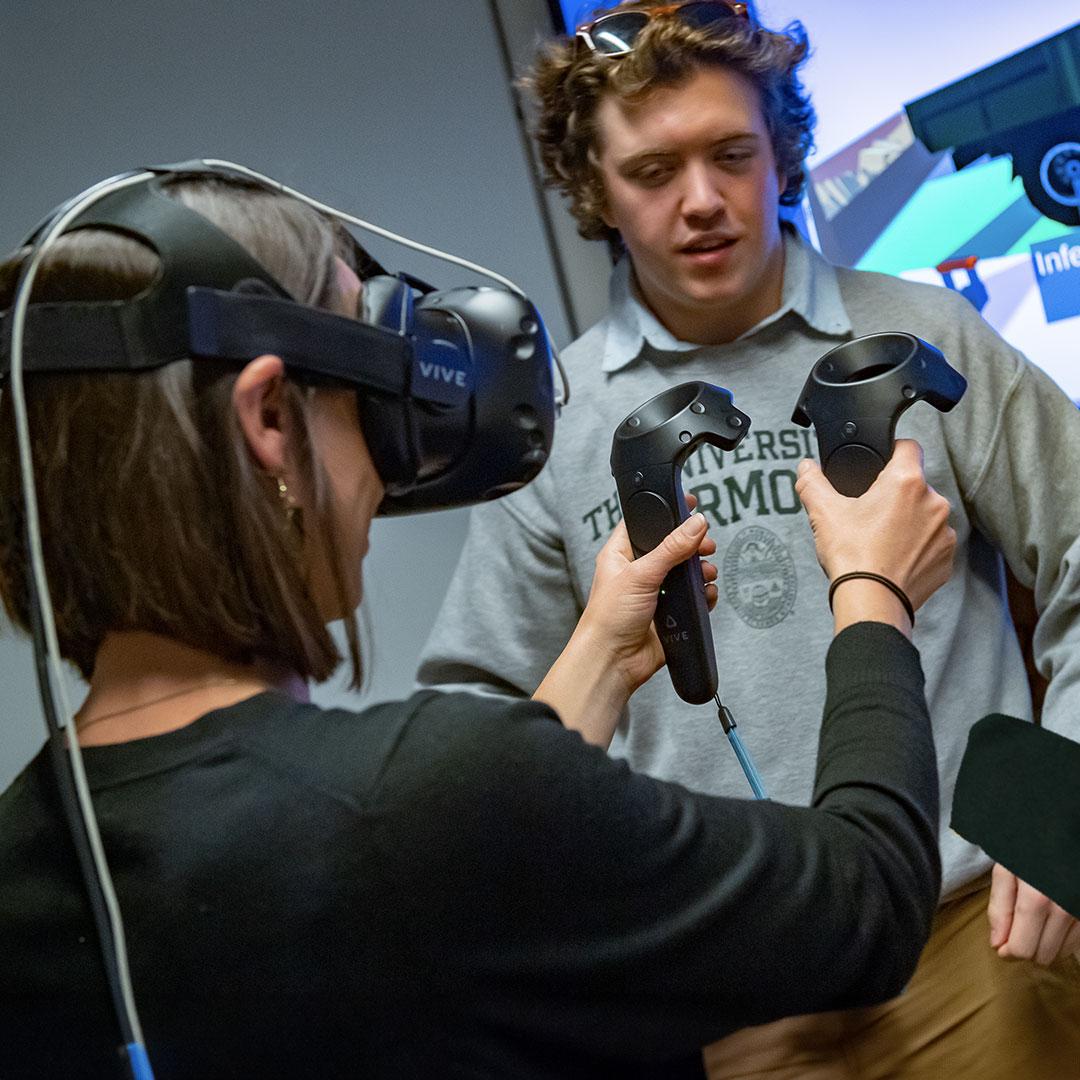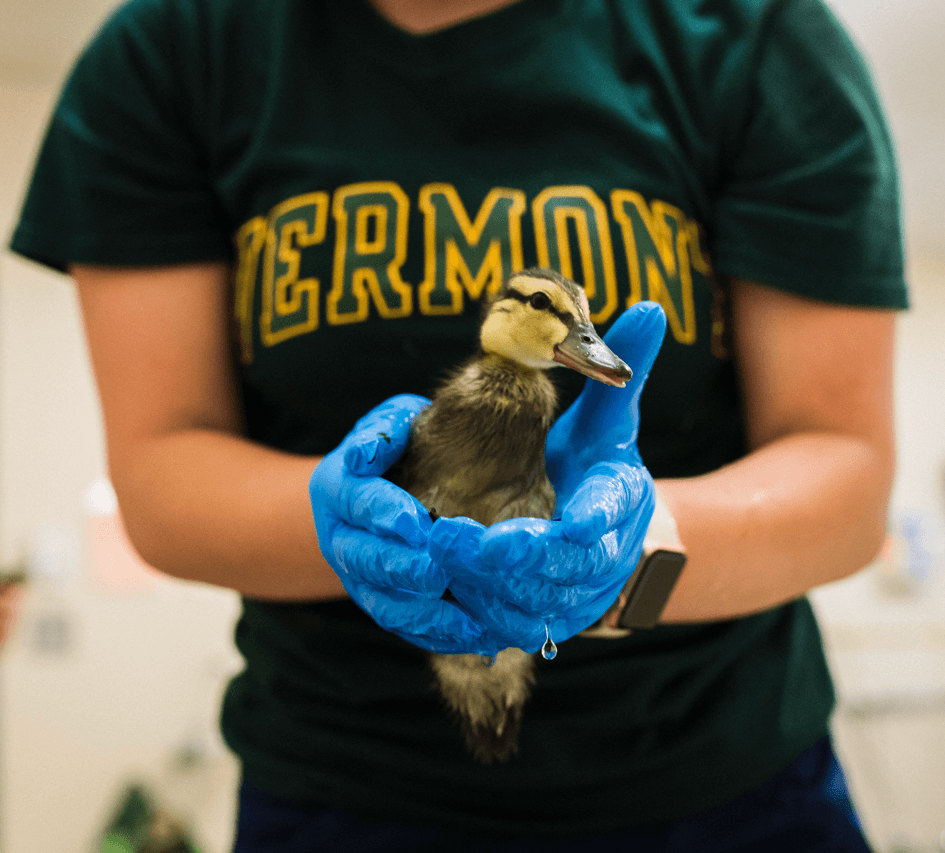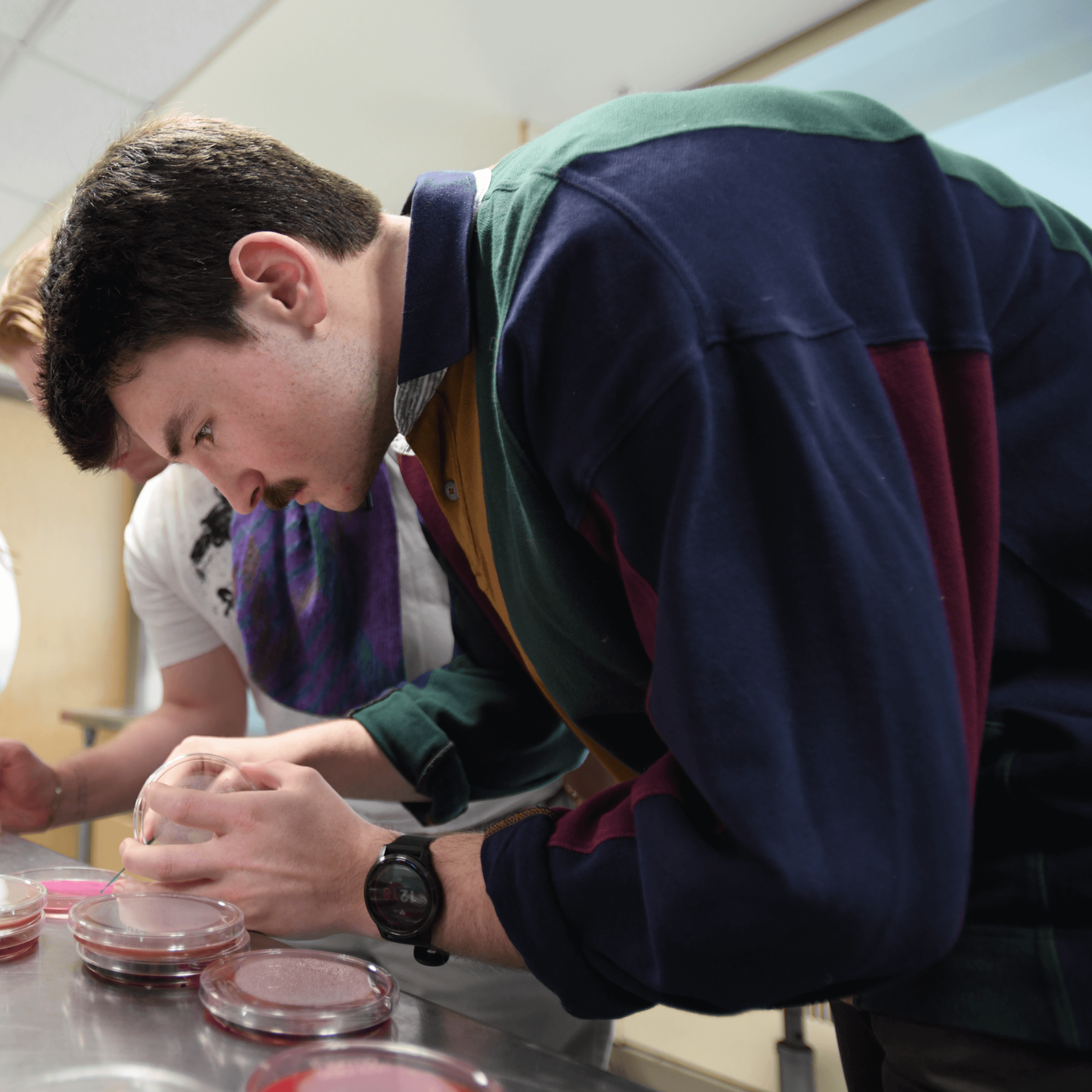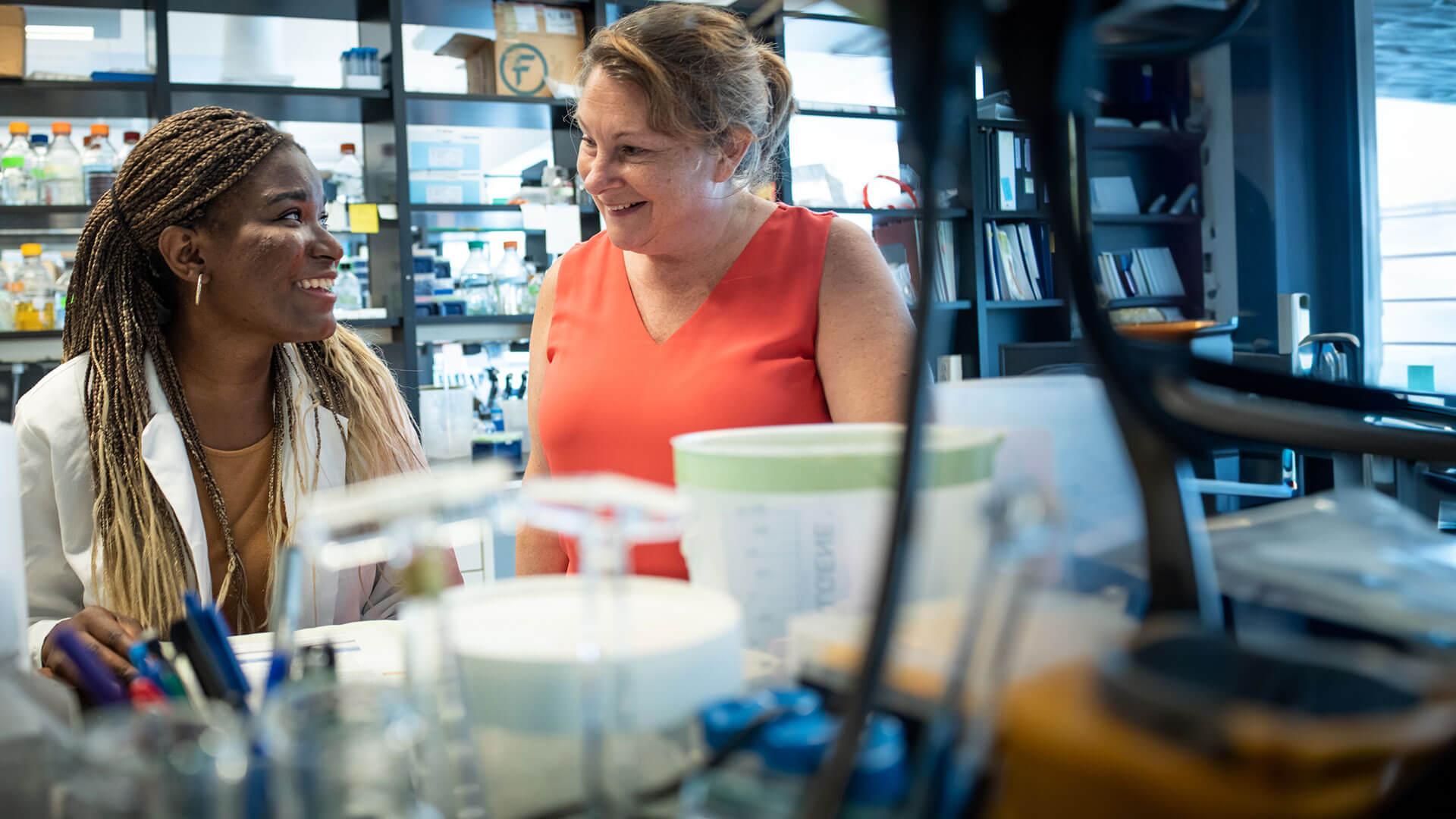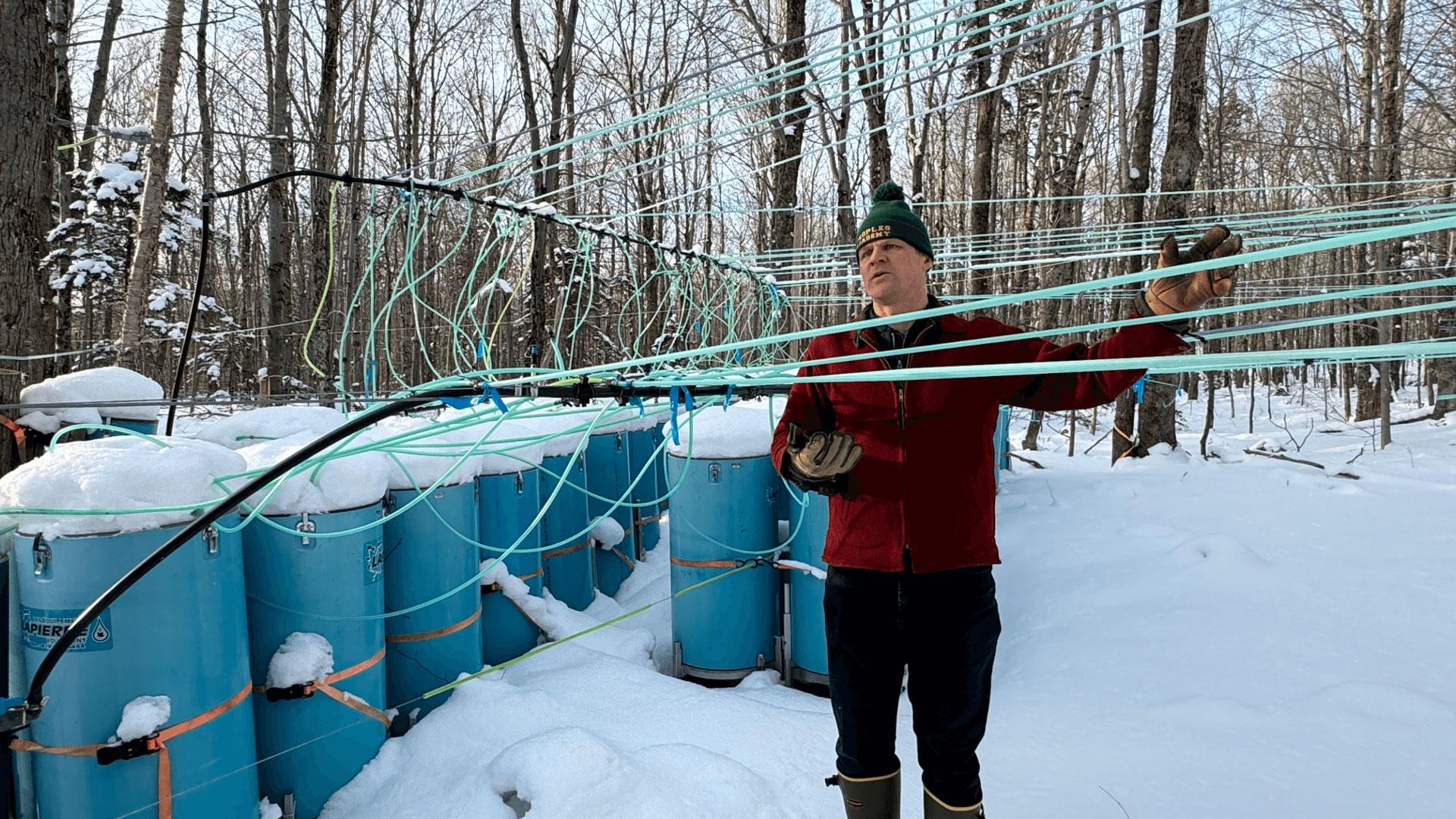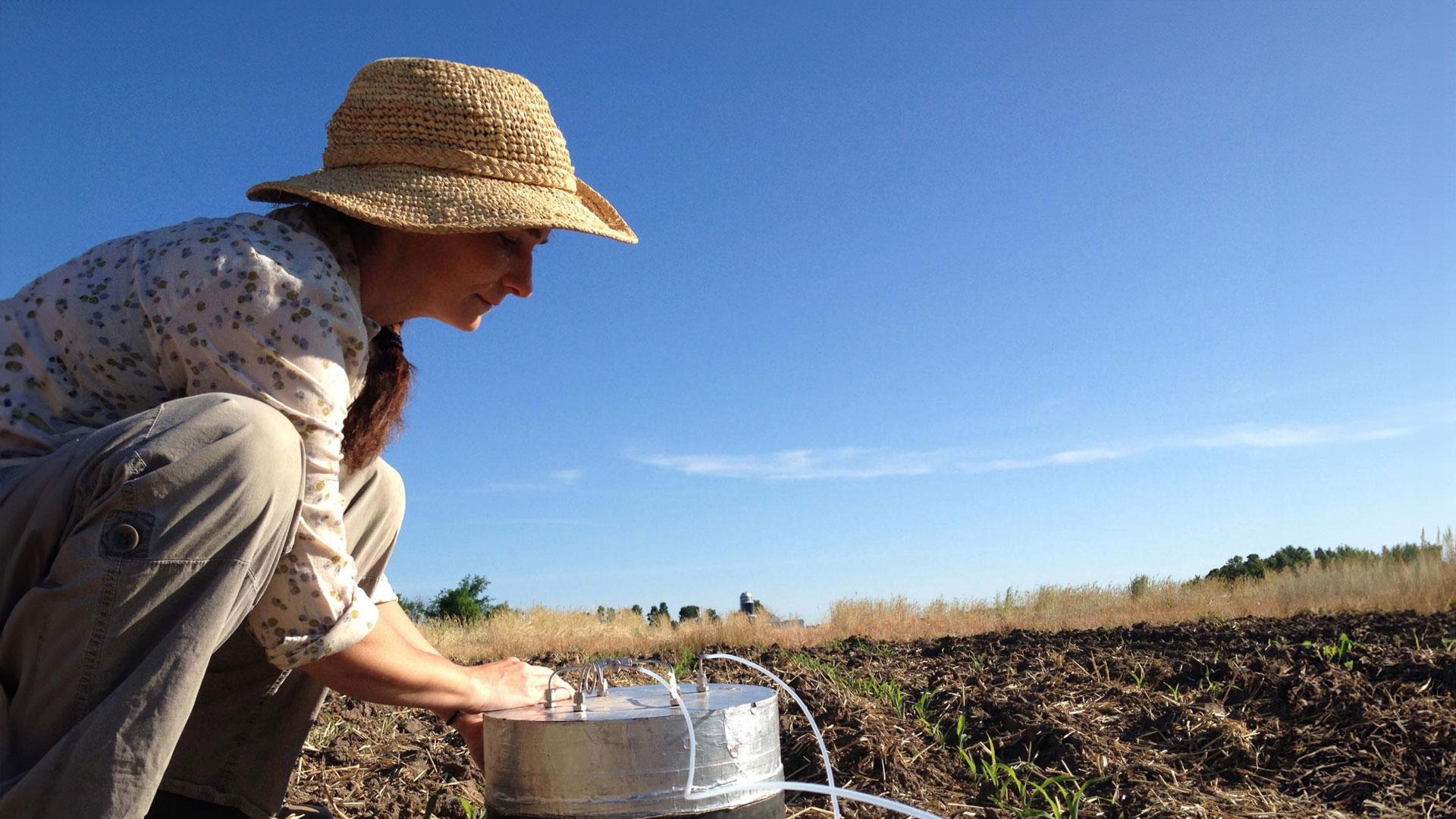CALS students consider a "planetary health" approach, understanding that the health of people, communities, animals, plants, and ecosystems are linked. Their studies span a diverse spectrum and can encompass veterinary, animal, and plant sciences, as well as biological, microbiological, molecular, and biochemical sciences. They explore sustainable agriculture, food systems, and nutrition alongside the social sciences of agroecology, economics, and community development. Public communication skills are honed, empowering our students to build more just societies and create impacts that will lead to a better future for all.
What makes CALS unique
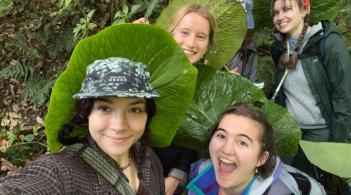
Exploring Globally

Community is the Classroom
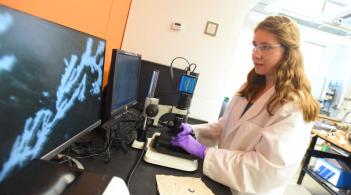
Embracing Innovation
By the numbers
- ~120 faculty across academic units and Extension
- 14 undergraduate majors
- 1,333 undergraduate students (Fall 2023)
CALS in the news

Old Growth, New Vision
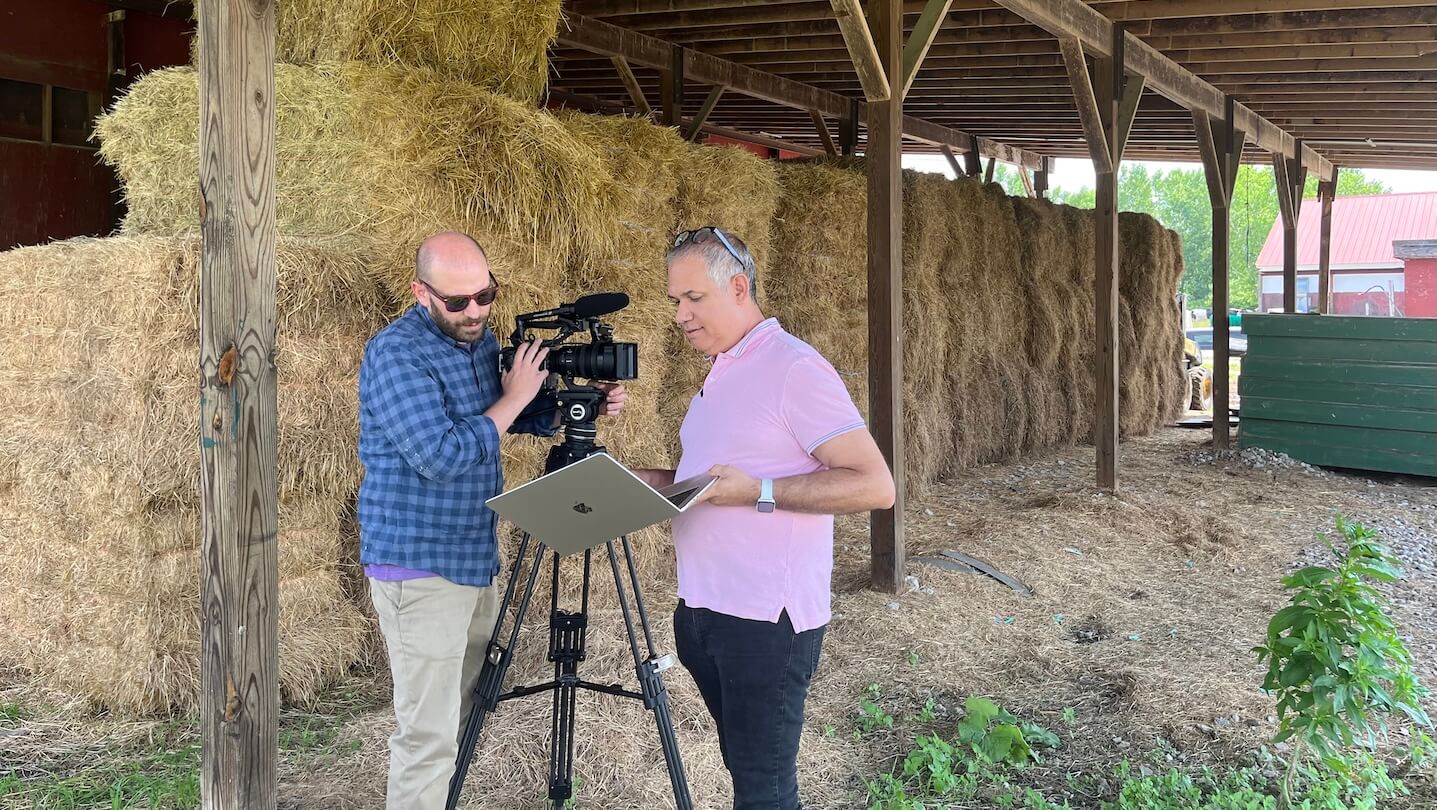
UVM's "Across the Fence" Television Show Inducted into Vermont Agricultural Hall of Fame
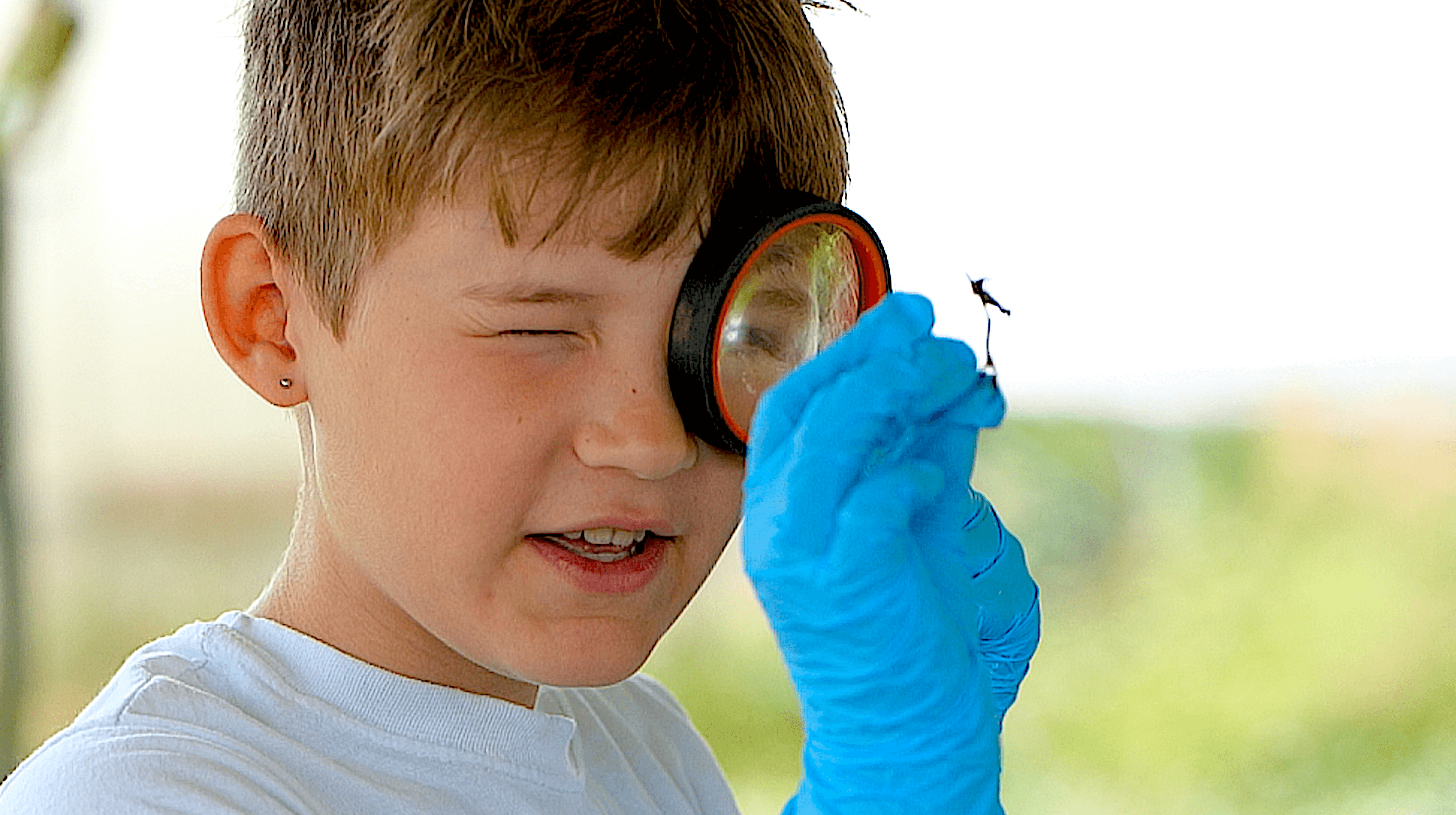
Eco Explorers Vermont: A Unique Camp Where Kids Roam the UVM Catamount Educational Farm
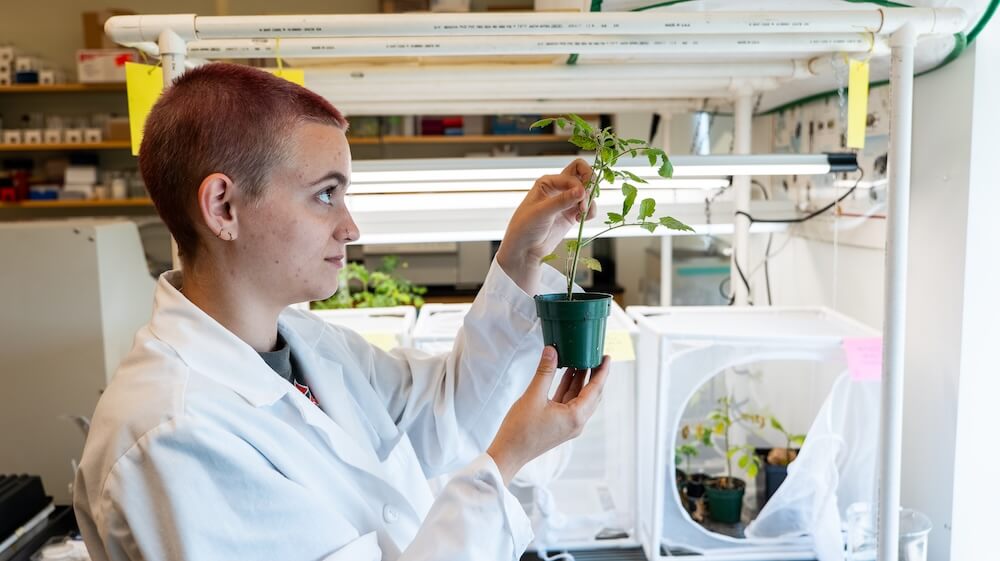
Fungi and Mites: A Dynamic Pest Management Duo?
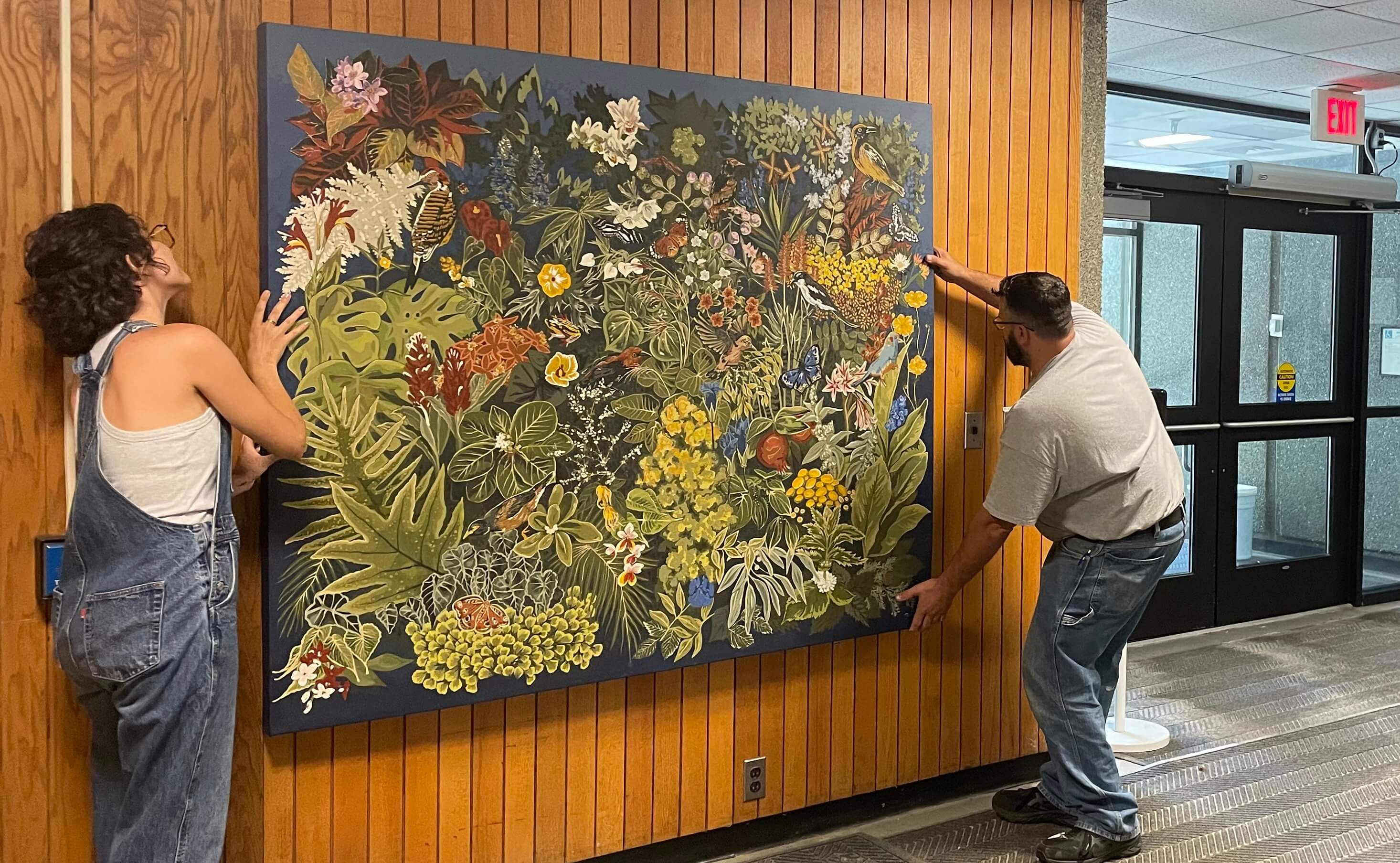
New Mural Celebrates Peace Corps’ Global Impact at UVM
Students, faculty, staff, and members of the public participating in VT-AES programs can access information about civil rights protections at the UVM Office of Equal Opportunity home page. Staff with the Office of Equal Opportunity are available to answer questions about reasonable accommodations, anti-discrimination policy, reporting, support measures, and related topics. Students interested in reasonable accommodations for a disability-related condition are encouraged to contact Student Accessibility Services.
